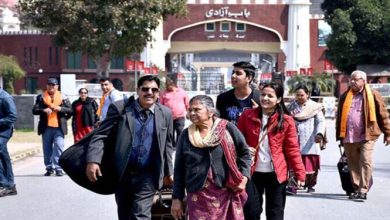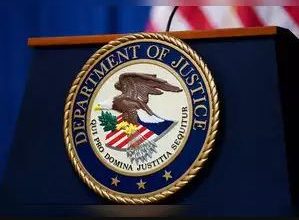Fierce debate erupts in Indian parliament over Waqf Bill; Opposition slams it as anti-Muslim, unconstitutional
 New Delhi: The introduction of the “Waqf (Amendment) Bill” by the Modi government in the Lok Sabha, lower house of the Indian Parliament, sparked a fierce debate, with the opposition parties vehemently opposing the bill, labeling it divisive, unconstitutional, and anti-Muslim.
New Delhi: The introduction of the “Waqf (Amendment) Bill” by the Modi government in the Lok Sabha, lower house of the Indian Parliament, sparked a fierce debate, with the opposition parties vehemently opposing the bill, labeling it divisive, unconstitutional, and anti-Muslim.
According to Kashmir Media Service, opposition MPs from the Congress, Samajwadi Party, All India Majlis-e-Ittehadul Muslimeen (AIMIM), Trinamool Congress, and other parties condemned the Modi government’s move, arguing that it is anti-constitutional citing Article 14, 25 and 26, and seeks to not allow Muslims to manage their own affairs and acquire and administer property.
Congress MP K.C. Venugopal said, “The Waqf Amendment Bill is a fundamental attack on the Constitution and it is a draconian law. The government is attacking the faith and religion of the people.” He added, “Through this Bill they are adding a provision that non-Muslims can also be part of the Council. The Supreme Court constituted the Ayodhya (temple) board. Can anyone think that a non-Hindu will be a part of the Ayodhya Mandir board? This provision that non-Muslims can also be part of the Council is a direct attack on the faith and freedom of religion. Now you are going for Muslims then you will go for Parsis, Jains and Christians”.
All India Majlis-e-Ittehadul Muslimeen (AIMIM) MP Asaduddin Owaisi said, “This bill is both discriminatory and arbitrary… This bill is evidence of the fact that you are an enemy of the Muslims and this Bill is proof of that.” “Government has sought to severely restrict how Muslims can manage their waqf property,” he said, adding the Modi government wants to take over dargah, masjid and waqf property through this Bill.
Akhilesh Yadav, Samajwadi Party chief, said, “This Bill has been introduced as part of well-thought-out politics. When there is a democratic process for elections, why nominate people? No one from outside the community is part of other religious bodies. What is the point of including non-Muslims in Waqf bodies?”
Dravida Munnetra Kazhagam (DMK) MP Kanimozhi Karunanidhi, said, “This is against the Constitution, a religious minority, and federalism. It shuns justice in every possible way.” She added this bill targets a particular religious group. “Many old mosques are in danger. Suddenly there is a PIL and archaeologists are sent there and they discover there was a temple before this and there is hate, division and issues among the people of the country,” Kanimozhi said.
Nationalist Congress Party (NCP) – Sharadchandra Pawar MP Supriya Sule objected to the Bill and said, “Look at what is happening in Bangladesh; there is so much pain… It is the moral duty of a country to protect minorities.”
Mohammed Basheer of the Indian Union Muslim League (IUML) said the Bill is part of the government’s “dirty agenda” and called it divisive, warning it could dismantle the Waqf system and promote encroachment on Waqf land.
TMC MP Sudip Bandyopadhyay said that the Bill is divisive, anti-constitutional and anti-federal. National Conference MP Mian Altaf Ahmad Larvi denounced the Bill saying it is draconian and aimed at disempowering the Muslim community across India.
Meanwhile, Maulana Mahmood Madani, President of Jamaat-e-Ulema-e-Hind, has expressed serious concerns about the proposed amendments to the Waqf Act. He criticized the changes, stating that they could harm the protection of waqf properties. Maulana Madani stated that Waqf properties are the divine ownership of God and cannot be subjected to any government or authority. He urged the government to withdraw the proposed amendments and engage in detailed consultations with all stakeholders, including religious leaders and waqf management bodies.
Notably, the proposed Waqf (Amendment) Bill aims to introduce significant changes to the Waqf Act, 1995, including ensuring the representation of non-Muslims in Waqf boards. Moreover, it seeks to change the composition of the Central Waqf Council and the state waqf boards. The Bill proposes to address issues related to the powers of the board, the composition of the Central Waqf Council and state Waqf boards, and the definition of ‘Waqf’. The Bill was last amended in 2013.








